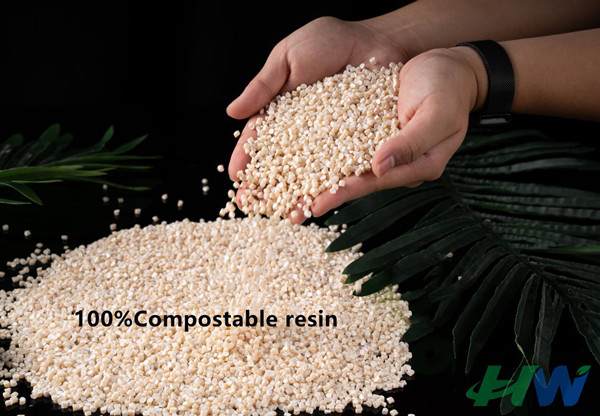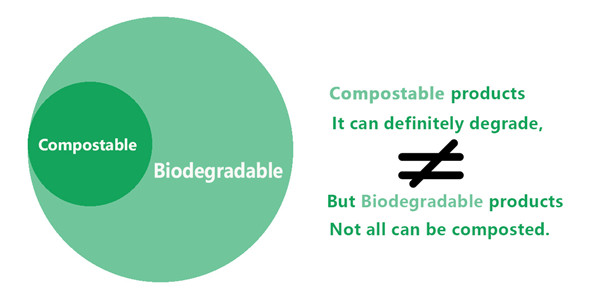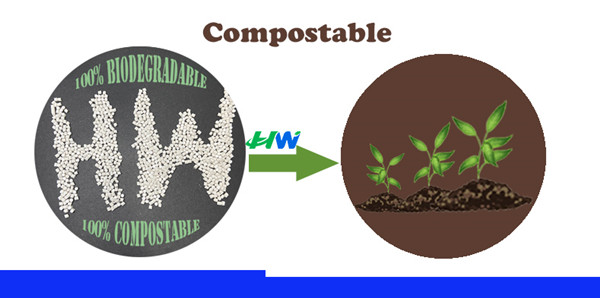In 2024, "white pollution" and the accumulation of discarded plastic are urgent environmental pollution problems that need to be solved. Developing biodegradable plastics is one of the effective methods to address this issue.

The Biodegradable plastics produced by Huawei New Materials do not contain polyolefin materials such as PE and PP, and are raw materials that can be 100% biodegradable and composted. They can be processed using traditional blow film equipment.
After 180 days under composting conditions, it can be biodegraded into water, carbon dioxide, and organic fertilizer without causing pollution to the environment. In addition, biodegradable plastic products have a soft and resilient feel. The processing temperature is lower than that of ordinary plastics, which are solid and durable, have good coloring properties, and are naturally anti-static. They are the best choice to replace non degradable materials (such as PE and PP).

Plastic that is compostable is biodegradable, but not every plastic that is biodegradable is compostable. Whereas biodegradable plastic may be engineered to biodegrade in soil or water, compostable plastic refers to biodegradation into soil conditioning material (i.e., compost) under a certain set of conditions.
Compost is an organic fertilizer used to improve soil quality and increase crop yield and quality. It is a fertilizer formed by mixing multiple raw materials and undergoing composting and fermentation processes. A series of biodegradable and compostable resins made from different starches, such as corn, potatoes, grains, calcium carbonate, and polymers from other biological sources. Compostable resin is designed to operate on existing standard industrial equipment, providing an opportunity to completely replace traditional plastics. Compostable resin typically decomposes rapidly and completely within 180 days when composted under specific conditions. They are also designed to be free of harmful toxins and have a lower carbon footprint than traditional petroleum based plastics.
Microorganisms break it down into carbon dioxide, water, inorganic compounds and biomass at the same rate as other organic materials in the compost pile, leaving no toxic residue.

1. Increase soil organic matter: Compost contains rich organic components, which can increase soil organic matter content and improve soil quality.
2. Improving soil structure: Organic matter in compost can combine with inorganic substances in the soil to form stable soil particles and improve soil structure.
3. Improve soil fertility: Compost is rich in nutrients, which can provide essential nutrients for plants.
4. Improving crop quality: Using compost fertilizers can increase crop yield and quality.
